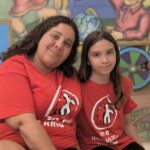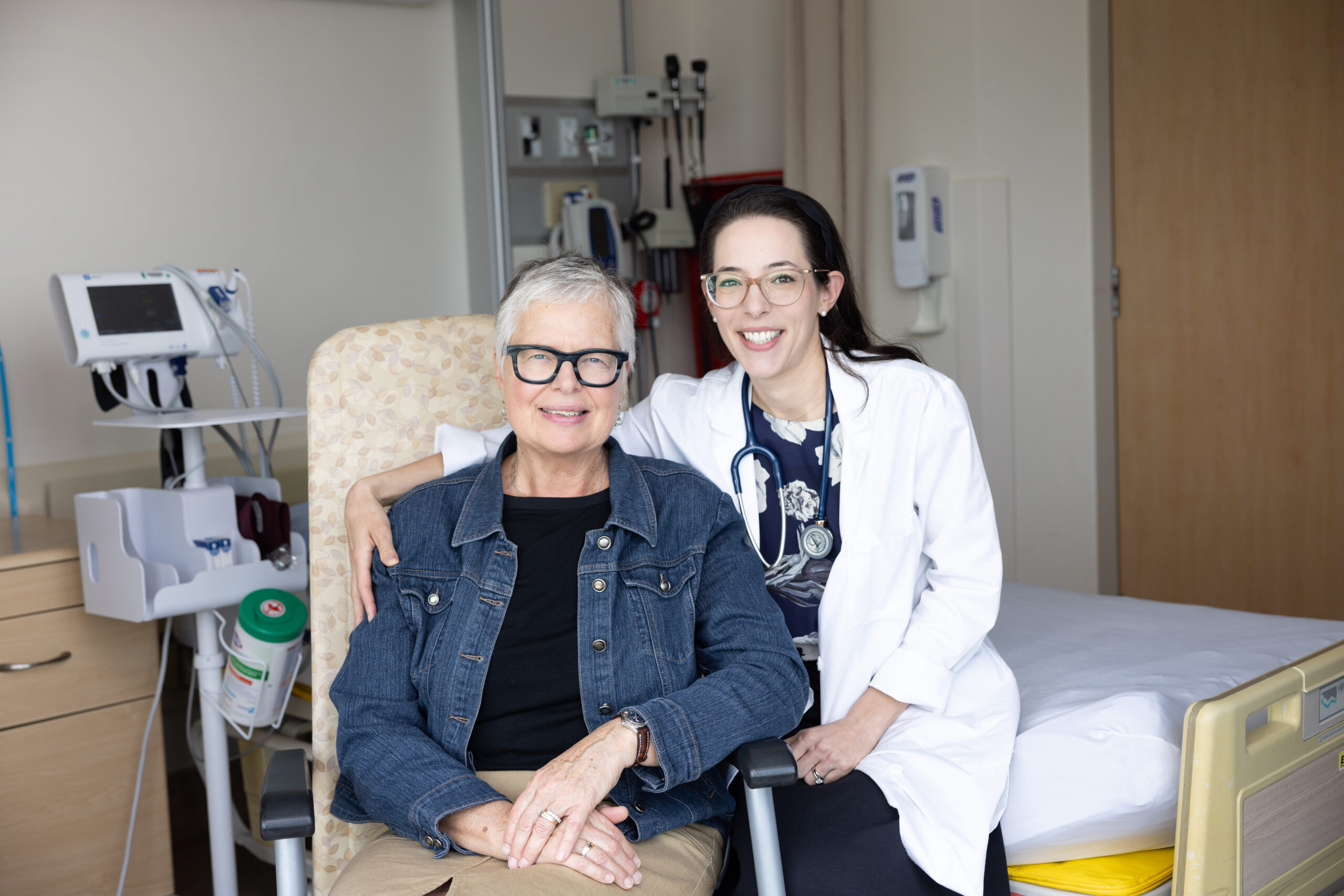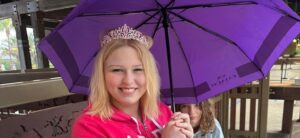Heaton’s ninth wedding anniversary was unforgettable, but not in a way he hoped.
The back pain that had started a few weeks earlier when lifting a heavy bag of mulch had escalated to the point of agony. Despite the celebratory day, his husband insisted they get this checked out.
Heaton assumed he’d pulled a muscle. The doctors at his local emergency department weren’t so optimistic. He rushed him to Hamilton General Hospital for an emergency MRI. The scan revealed a spine riddled with lesions. Doctors sent Heaton for an urgent consultation at Juravinski Cancer Centre.
Emergency intervention
Heaton went directly from his initial consultation to the radiation suite. Within days he had his first consultation with Dr. Hira Mian, a hematology oncologist. She soon determined that Heaton had multiple myeloma, a rare type of blood cancer. As one of Canada’s leading multiple myeloma researchers, Dr. Mian knew it needed to be treated immediately and aggressively. If all went well, the best intervention would be a stem cell transplant.
Fortunately for Heaton, he was in the right place. Juravinski Hospital and Cancer Centre is a world leader in stem cell transplants and one of only three Ontario hospitals offering all forms of adult stem cell transplants.
Transplant and recovery
Dr. Mian put Heaton on an intensive 20-week course of chemotherapy in preparation for the transplant. “The chemo experience is not fun,” he says. He was taking as many as 50 pills in a day and feeling incredibly weakened. “But people in the chemo suite do everything to make it as comfortable as possible.”
Eventually, the chemo reduced the tumours enough to schedule an autologous stem cell transplant. For this procedure his own stem cells were collected, stored and then reinfused back into his body to attack the multiple myeloma.
“The process itself is grueling,” says Heaton, remembering the initial weeks post-transplant when he felt so nauseous that the taste of water was more than he could bare. But over the course of the next six weeks, Heaton went from feeling the worst he had ever felt in his life to quite normal.

Ongoing support and commitment
Today, Heaton’s life is mostly back to normal – with the exception of a firm prohibition on lifting gardening mulch. “My husband won’t allow it,” he jokes.
While landscaping is off the table, Heaton is proud to have traded in his walker for a back brace and to be back up to a rigorous 10,000 steps a day.
He credits his progress to the exceptional care he received at Juravinski Hospital and Cancer Centre. “You’re going through a difficult situation with people who really care,” he said, emphasizing that everyone he encountered at the Hospital was warm, professional, competent and had a knack for injecting a healthy dose of humour with masterful timing. “My experiences have been nothing short of outstanding because of the team at the hospital.”
Heaton’s cancer is currently being suppressed by a daily drug regimen. He is closely monitored by Dr. Mian and her team at Juravinski Hospital and Cancer Centre. Multiple Myeloma is a highly recurrent cancer. Heaton describes the current state of his cancer journey as an intermission rather than remission – relapse is almost inevitable. When this drug regimen stops working – whether that’s in two years or 15 – Heaton will need a new treatment regimen. His journey with Juravinski Hospital and Cancer Centre is far from over.
“I’m in a life-long relationship with the team at [the Cancer Centre],” says Heaton. “They’re keeping me alive and will always be part of my life, and that’s beautiful.”
For his part, Heaton is fully committed to this long-term relationship. His work raising funds and awareness with the Myeloma March underscores his commitment to support the team that has taken such diligent care of his health.
“I strongly believe that charitable giving is your opportunity to say thanks,” he explains. “And if you’re dealing with cancer and have all these people helping you, you’ll want to say thanks, again and again.”



